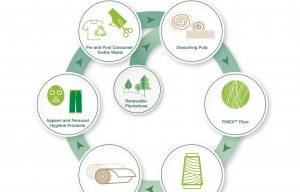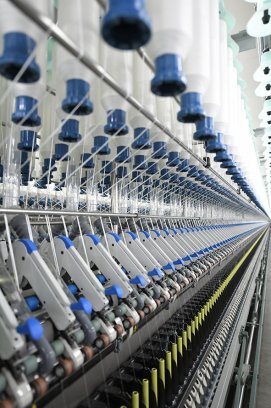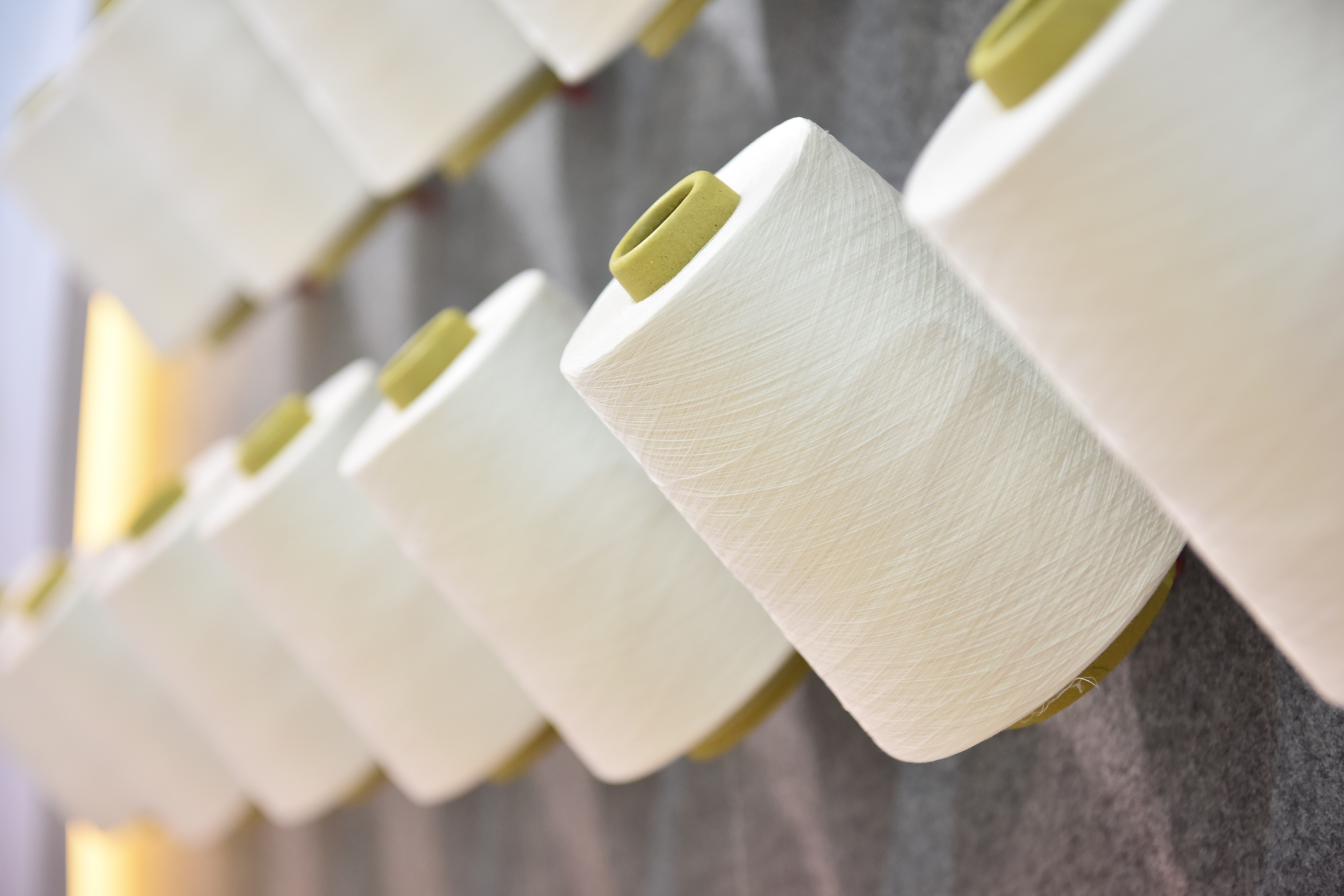
Sateri’s new recycled fibre Finex now in stores
Sateri is working with several dissolving pulp producers using various innovative technologies to aid the push towards a circular bio economy

17th March 2020
Knitting Industry
|
Shanghai

© Sateri.
Sateri, the world’s largest producer of viscose, has issued a statement saying it has successfully produced viscose fibre regenerated from textile waste on commercial scale. The Shanghai headquartered company says the high-quality new fibre uses a mix of dissolving pulp made from recycled post-consumer textile waste by Swedish company Södra, and other PEFC-certified wood pulp.
Allen Zhang, President of Sateri, commented: “We are excited to commercialise a new product that meets the fashion industry’s aspirations for more sustainably produced textile fibres. The technology to regenerate textile waste into new cellulosic fibres is emerging and technically challenging but, in the past few months, our R&D team has worked hard to find the right balance between producing a recycled viscose product while maintaining high quality. Our ability to do so using a 35,000 ton-per-annum commercial production line is a breakthrough as it means we are now ready and capable of scaling up production to respond to market demand. We see this as a win for both the environment and our customers.”
Trialled at Sateri’s Linz Nanjng yarn spinning mill using two advanced technologies, Siro compact and Vortex, the new fibre has proven compatibility with existing spinning technologies, Sateri says - ensuring stable yarn production without the need to adjust existing processes or parameters. The fibre also has excellent spinning efficiency and delivers yarn evenness and tenacity, the company adds.
“Being part of the RGE group of companies allows Sateri access to world-class pulp production expertise. Coupled with our deep experience and competence in viscose production and our yarn spinning capabilities, this value chain integration puts us in a strong position to accelerate next-generation textile fibre innovation and production. The benefits to Sateri’s yarn customers and brand partners are quality assurance, stability and responsiveness. We look forward to adding greater value and product offerings to support the development of a sustainable fashion industry – this breakthrough is the first of more to come,” said Tom Liu, Sateri’s Vice President for Sales and Marketing.
Johannes Bogren, Vice President of Södra Cell Bioproducts, added: “We are delighted to be working together with Sateri to help create innovative, sustainable solutions for the textile industry. Södra’s groundbreaking OnceMore technology is a world first in the separation of blended fabrics and recycling of textiles from post-consumer waste. It has huge potential to increase the circularity and recycled content of textiles and we are excited to begin this cooperation with Sateri. It’s great to have a forward-thinking partner like Sateri onboard to drive this forward.”
Sateri’s breakthrough comes on the back of RGE’s announcement in October last year of a USD200 million investment towards next-generation cellulosic fibre innovation (see - RGE commits $200m to textile fibre innovation ). Sateri is working with several dissolving pulp producers using various innovative technologies to aid the push towards a circular bio economy. Sateri will be partnering yarn customers, garment manufacturers and fashion brands to market and officially launch this new recycled viscose fibre product in the coming months, with the eventual goal of making recycled fibre available to the mass market.
Sateri is the world’s largest producer of viscose fibre, a natural and sustainable raw material found in everyday items like textiles, baby wipes and personal hygiene products. It has five mills in China – Sateri Fujian, Sateri Jiangxi, Sateri Jiujiang, Sateri Jiangsu and Sateri China – and has an annual production capacity of about 1.4 million metric tonnes. Sateri also operates Linz (Nanjing), a yarn spinning mill. The company’s headquarters are in Shanghai, where it has sales, marketing and customer service network covering Asia, Europe and the Americas.

Business intelligence for the fibre, textiles and apparel industries: technologies, innovations, markets, investments, trade policy, sourcing, strategy...
Find out more